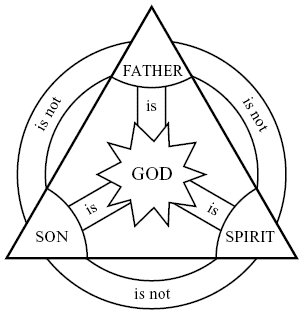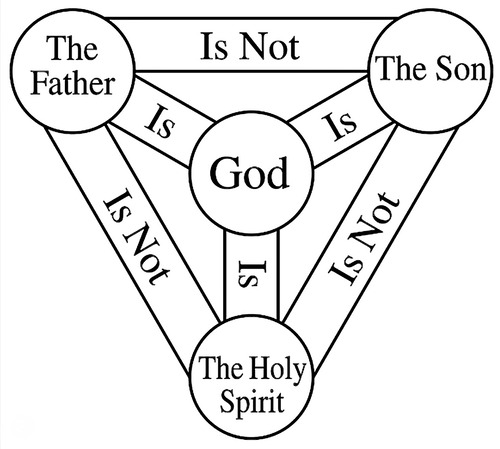Death Penalty For Blasphemy: Was God Too Harsh?
God’s command in Leviticus 24:16 may trouble modern readers: “Whoever blasphemes the name of the LORD shall surely be put to death.” However, the fact that we’re shocked by death as a penalty for blasphemy reveals more about our own diminished view of God. If we think God is overreacting, we haven’t read the Bible with much attention, or understood God as the Bible portrays Him. What’s more, if the transcendent holiness of God hasn’t sunk in, neither will our own utter wretchedness.
The God of Scripture isn’t the domesticated deity of popular imagination—a doting cosmic grandfather who benignly overlooks our irreverence. Instead, He is the thrice-holy Lord whose presence caused Mount Sinai to tremble, the One whose holiness is a consuming fire. When we grasp this reality, the question shifts dramatically from “Was God too harsh?” to “Will I ever survive in the presence of such holiness?”…
UNDERSTANDING BIBLICAL BLASPHEMY
To understand why God commanded death for blasphemy, we must first understand what blasphemy actually is in the Bible’s terms. Many today equate blasphemy with casual profanity or merely speaking irreverently about religion. But in Scripture, blasphemy represents something far more serious—a direct assault on the character and authority of God Himself.
When God gave the Third Commandment—”You shall not take the name of the LORD your God in vain”—He wasn’t merely setting rules about vocabulary. He was establishing the fundamental principle that His name carries His very essence, authority, and glory. To blaspheme that name is to attempt to diminish the Almighty, to rebel against His sovereign rule, and to declare oneself His enemy.
The gravity of blasphemy becomes clear in cases like the incident described in Leviticus 24:10-16, where a man explicitly blasphemed God’s name during a dispute. This wasn’t merely poor word choice or a momentary lapse in judgement—it represented outright rebellion against divine authority.
THE HOLINESS OF GOD
To grasp why God commanded such severe punishment for blasphemy, we must first understand the absolute holiness of God. Reformed theology emphasises God’s transcendent nature—He isn’t merely a greater version of ourselves but is utterly distinct in His perfect holiness. As RC Sproul often noted, God’s holiness isn’t simply one attribute among many but the attribute that shapes all His other attributes.
When Isaiah encountered God’s holiness in Isaiah 6, his response wasn’t casual discomfort but deep terror: “Woe is me! For I am lost; for I am a man of unclean lips.” This reveals the proper creaturely response to divine holiness. God’s glory demands perfect reverence not because He is insecure but because His nature as the infinitely worthy Creator necessitates it.
COVENANT CONTEXT
The death penalty for blasphemy must be understood within its theocratic context. Israel wasn’t merely a nation with some religious elements—it was a covenant community specially constituted to represent God’s kingdom on earth. The civil laws given to Israel served to maintain covenant faithfulness and demonstrate God’s holiness to surrounding nations.
Reformed theology helps us understand the distinct categories of biblical law—moral, civil, and ceremonial. While the civil penalties of ancient Israel no longer bind us, the moral principle underlying the blasphemy law—that God’s name deserves absolute reverence—remains unchanged.
SIN’S TRUE SEVERITY
Reformed doctrine emphasises humanity’s total depravity and sin’s true gravity. Every sin, including blasphemy, constitutes cosmic treason against an infinitely holy God. As Jonathan Edwards argued, sin’s severity is measured not by the act itself but by the worth of the One sinned against.
Romans 6:23 declares “the wages of sin is death.” This applies to all sin, not just blasphemy. The fact that we’re shocked by death as a penalty for blasphemy may reveal more about our diminished view of God than about any divine overreaction.
CHRIST’S FULFILLMENT
The gospel provides the ultimate context for understanding God’s severe judgement of blasphemy. Christ Himself was accused of blasphemy and died under its penalty, though He was innocent. He bore the punishment blasphemers deserve, fulfilling the law’s demands and establishing a new covenant.
Under the new covenant, the church no longer implements civil penalties for blasphemy. However, the serious nature of dishonouring God’s name remains unchanged. The difference lies in how this sin is addressed—through church discipline, pastoral care, and the proclamation of Christ’s saving work.
CONCLUSION: DEATH PENALTY FOR BLASPHEMY
When we flinch at God’s command regarding blasphemy, we reveal not His harshness but our own spiritual blindness. The death penalty for blasphemy is a stark reminder the God of the Bible isn’t the domesticated deity of our imagination, but the consuming fire of perfect holiness. Every survival instinct in our being should tremble at the thought of dishonouring His name.
The severity of the penalty for blasphemy serves not to reveal God’s pettiness but to shake us from our lethal delusions about who He is and who we are before Him. That we can approach God at all isn’t because blasphemy has become less serious, but because Christ has paid its full penalty in His own blood.
This reality should produce in us both profound gratitude and holy fear. We stand in grace, yet this grace should drive us to our knees in reverence. As beneficiaries of the new covenant, we’re called to honour God’s name not from mere duty but from hearts that have finally grasped the weight of glory. Perhaps the real question isn’t whether God overreacted, but whether we have ever truly understood the God we claim to worship.
DEATH PENALTY FOR BLASPHEMY—RELATED FAQs
Does God still require the death penalty for blasphemy today? Under the New Covenant, civil penalties for blasphemy no longer apply since we’re not living in the theocratic nation of Israel. However, while the gravity of blaspheming God remains unchanged, Christ has borne the death penalty that blasphemers deserve. Believers, though covered by the righteousness of Christ, still need to repent and seek forgiveness.
- What exactly counts as blasphemy in the Bible? Blasphemy involves deliberately dishonouring or attacking God’s character, authority, or name. It goes far beyond casual profanity or irreverent speech, and represents a conscious rebellion against God’s sovereignty and glory. This includes attributing evil to God, denying His essential attributes, or deliberately defaming His name.
- Why was blasphemy considered worse than most other sins in Old Testament law? Blasphemy directly attacks God’s honour and sovereign authority, striking at the very heart of Israel’s covenant relationship with Him. While all sin deserves death, blasphemy represents a particularly egregious form of rebellion that threatens the entire covenant community’s relationship with God and their witness to surrounding nations.
How does Jesus’ death affect our understanding of blasphemy’s punishment? Christ’s death satisfied God’s justice for all sins, including blasphemy, for those who trust in Him. The cross demonstrates both the severity of blasphemy (requiring the death of God’s Son) and the magnitude of God’s grace. Jesus Himself was accused of blasphemy and died bearing its penalty, though He was innocent.
- What is the unforgivable sin of blasphemy against the Holy Spirit? Blasphemy against the Holy Spirit involves persistently and knowingly attributing the work of God’s Spirit to Satan, revealing a heart so hardened it refuses to recognize or respond to God’s truth. This sin is unforgivable not because it exceeds God’s grace, but because it represents a complete rejection of the Spirit who brings that grace.
- Why does God seem so concerned about His name? God’s name represents His character, authority, and presence—it isn’t merely a label but carries His very essence. His concern for His name reflects His perfect holiness and the fact that He alone is worthy of all honour. When we understand who God truly is, we begin to realise His jealousy for His name is right and necessary.
How should Christians respond to blasphemy in today’s culture? Christians should maintain a deep reverence for God’s name while responding to blasphemy with grace and gospel truth. We should grieve over blasphemy while remembering that we too were once God’s enemies, saved only by grace. Our primary response should be to pray for and witness to blasphemers, pointing them to Christ who alone can save them from judgment.
DEATH PENALTY FOR BLASPHEMY—OUR RELATED POSTS
Editor’s Pick

Sacred Fury: What Christ’s Temple Cleansing Truly Means
Mark 11 records the crack of a handmade whip that echoed through the temple corridors. Tables crashed to the ground, [...]

Did Jesus Cleanse the Temple Twice?
OR DID JOHN DISAGREE WITH THE SYNOPTICS ON TIMING? One of sceptics’ favourite "gotcha" questions targets what they see as [...]

Self-Authentication: Why Scripture Doesn’t Need External Validation
"How can the Bible prove itself? Isn't that circular reasoning?" This objection echoes through university classrooms, coffee shop discussions, and [...]

The Racial Diversity Question: Does the Bible Have Answers?
Walk into any bustling metropolis today and you'll likely witness humanity's breathtaking diversity—the deep ebony skin of a Sudanese family, [...]

Do Christians Need Holy Shrines? Why the Reformed Answer Is No
Walk into a medieval cathedral and you'll encounter ornate shrines, gilded reliquaries, and designated "holy places" where pilgrims gather to [...]

If God Is Sovereign, Why Bother Praying?
DOESN’T DIVINE SOVEREIGNTY OBVIATE PRAYER? **Editor’s Note: This post is part of our series, ‘Satan’s Lies: Common Deceptions in the [...]

I Want To Believe, But Can’t: What Do I Do?
"I want to believe in God. I really do. But I just can't seem to make it happen. I've tried [...]

BC 1446 or 1250: When Did the Exodus Really Happen?
WHY REFORMED SCHOLARS SUPPORT THE EARLY DATE Many a critic makes the claim: “Archaeology has disproven the biblical account [...]

Does God Know the Future? All of It, Perfectly?
Think about this: our prayers tell on us. Every time we ask God for something, we’re confessing—often without realising it—what [...]

Can Christian Couples Choose Permanent Birth Control?
Consider Sarah, whose fourth pregnancy nearly killed her due to severe pre-eclampsia, leaving her hospitalised for months. Or David and [...]





